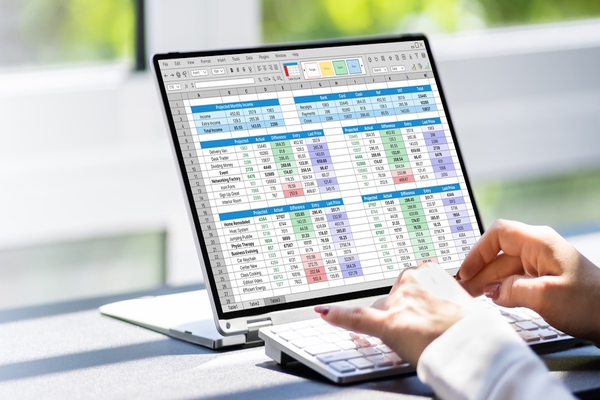Unlocking the power of data in digital transformation
Jeremy Swinfen Green explores how data-driven insights can be turned into a sustainable competitive advantage

Digital transformation is not just about adopting new technologies. It’s about fundamentally rethinking how businesses operate.
At the heart of this transformation lies data. Companies that excel in collecting, analysing and applying data are better equipped to optimise their processes, understand their customers and identify new and shifting market opportunities.
Turning data into competitive advantage
Treating data as a strategic asset is the first step towards leveraging its potential. Data should be thought of as being just as important as capital, skills, physical assets and intellectual property. Companies that prioritise their investments in data infrastructure, governance and talent will create a foundation for success.
Transforming raw data into actionable insights requires technologies such as advanced analytics and AI. These technologies enable businesses to uncover hidden patterns, forecast trends and make informed decisions.
Customer-centricity plays a crucial role here. By analysing behavioural data, companies can uncover market trends, predict customer needs, personalise experiences and build loyalty. For example, many retailers offer recommendations for additional purchases. These use data processed by powerful AI algorithms to predict items that customers are likely to buy, and have become a cornerstone of the success of many online retailers, from Amazon to Zavvi.
But data isn’t just about understanding customers. Predictive analytics help companies quantify risks with AI-driven tools that decrease credit default rates and customer churn, identify which processes are most at risk from hackers or supply chain disruption and even help employers reduce employee resignations. Real-time decision-making, enabled by big data analytics, allows businesses to respond swiftly to market changes or adjust pricing dynamically based on demand. And the analysis of data collected during business operations enables process efficiency to be optimised, waste and unnecessary inventory to be reduced and product availability to be improved.
Leaders with the right data skills
But there is a need for skills and vision alongside technology. For data-driven initiatives to succeed, employees, and leaders in particular, must bridge the gap between technical expertise and strategic decision-making. This requires an ability to interpret trends and debate the implications of data with specialists.
Effective leaders understand fundamental concepts such as data quality, types and sources. They excel in interpreting the strategic implications data trends. They understand ethical issues such as privacy concerns and data misuse, which can damage trust and reputation. They promote a data-first culture across their organisations, ensuring that the responsible use of data delivers the benefits that are desired.
The ROI of data in digital transformation
These benefits inevitably come at a cost, whether that is in human and computer time or investments in tools and technology. For example, investing in scalable infrastructure, such as cloud storage, data lakes and real-time analytics platforms, is vital. This ensures organisations will be able to handle the ever-increasing volume and complexity of data.
However, calculating the ROI of digital transformation can be complex because many benefits (such as employee morale and increased satisfaction) are hard to measure, especially in the short term. A structured approach to measurement is needed to ensure accountability and clarity.
Setting clear objectives for data that are tied to business outcomes is essential. For example, linking data initiatives to revenue growth, customer retention or operational efficiencies ensures alignment with strategic goals. Choosing the right set of metrics, including financial, customer experience-related and operational, provides a comprehensive view of success that is relevant for different stakeholders. Establishing baseline measurements will support the credibility of ROI analysis over time.
Challenges in using data effectively
But there are challenges in using data effectively during digital transformation programmes, and organisations must actively address these. Despite its potential, data can mislead if not handled carefully. Misleading visualisations can create false narratives, often due to cherry-picked data or deliberately distorted scales. This can happen because the people responsible for presenting data have mental biases such as confirmation bias (a focus on events and data that prove your existing opinions). Encouraging diverse perspectives, challenging assumptions and regularly auditing data can help overcome these challenges. Leaders should therefore critically evaluate data presentations and request raw datasets for better context.
There is also the problem of people failing to collect or analyse data correctly. Sampling errors can skew results: drawing conclusions from unrepresentative data or small samples often leads to flawed strategies. Other people may have a poor understanding of statistical probability. For instance, it is easy to confuse correlation with causation: ice cream sales and drowning incidents may rise simultaneously during hot weather, but they are unrelated. Careful analysis and expert input can clarify such misconceptions. Ensuring diversity and validating findings against broader datasets is vital.
Applying the power of data
To harness the power of data, businesses must create a culture that prioritises data-driven decision-making and a strategy that aligns data initiatives with business objectives. Rigorous governance practices must be mandated to maintain data quality and reliability. And training and tools that empower employees to make informed decisions using data must be in place. The intention must be to build genuinely useful insights rather than theoretical models, transforming raw data into clear, actionable strategies through advanced analytics and AI tools.
The power of data lies not just in collecting and processing it, but in its application. Organisations that integrate it into every facet of decision-making and operations can gain a considerable edge in today’s competitive landscape by unlocking the full potential of data-driven digital transformation.

Jeremy Swinfen-Green
Most Viewed
Winston House, 3rd Floor, Units 306-309, 2-4 Dollis Park, London, N3 1HF
23-29 Hendon Lane, London, N3 1RT
020 8349 4363
© 2025, Lyonsdown Limited. Business Reporter® is a registered trademark of Lyonsdown Ltd. VAT registration number: 830519543





